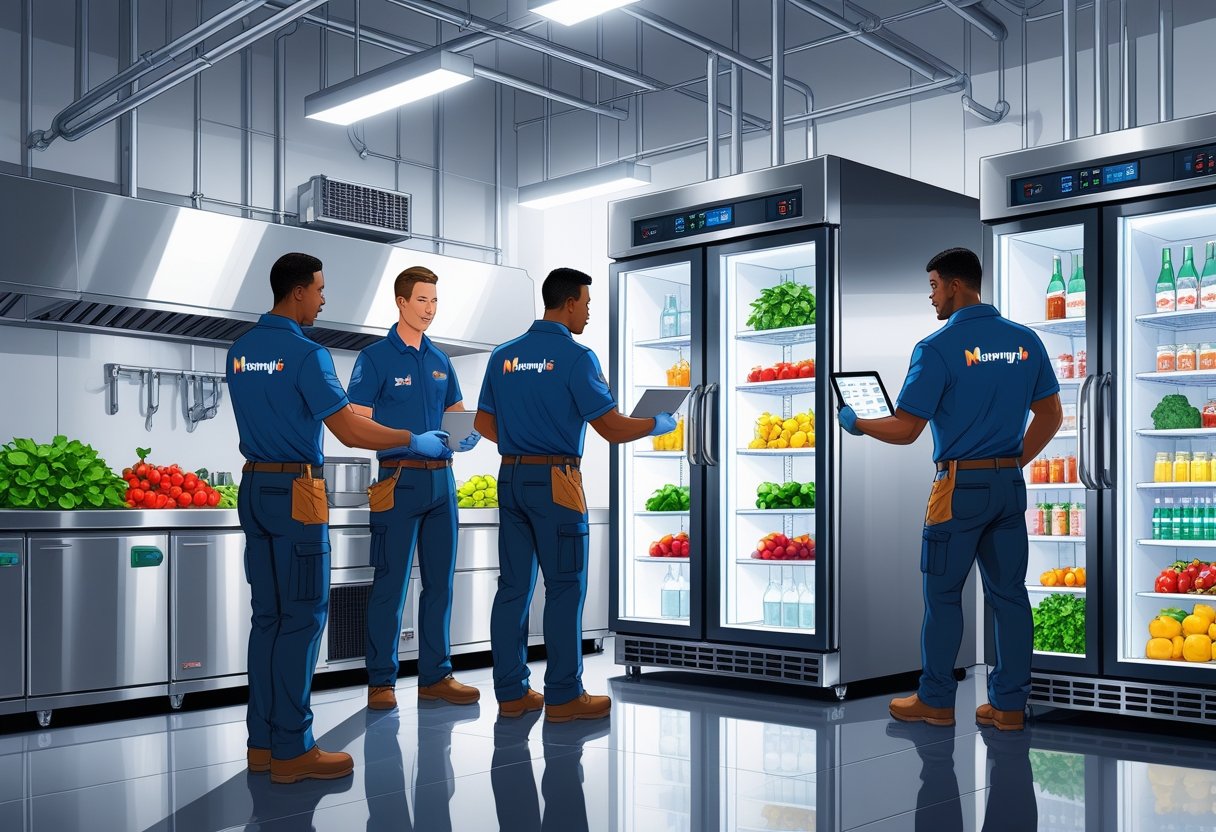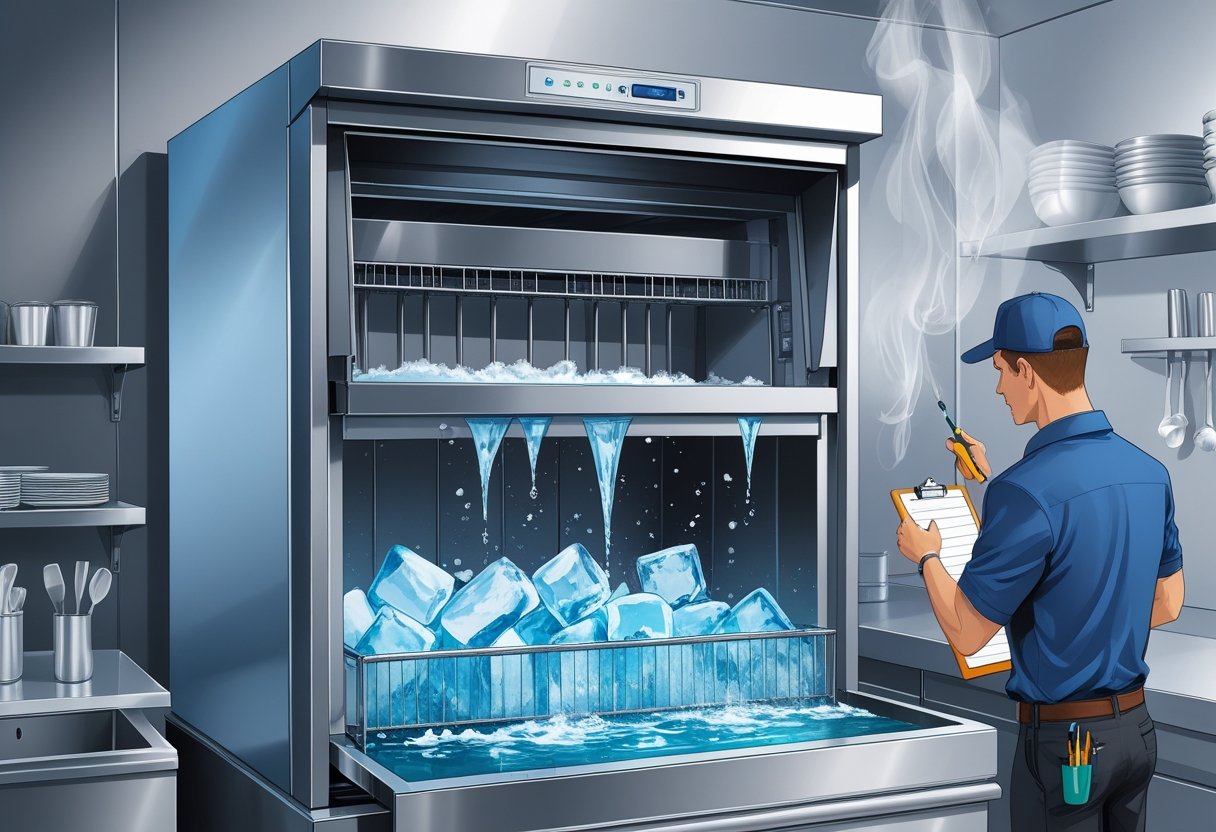proudly serving
the mid-south

10 Common Foods You Should NEVER Store in the Fridge (and Why Restaurants Don’t Refrigerate Ketchup)
It’s easy to know what you need to refrigerate, but it’s tricky to learn what you shouldn’t. That’s why we put together this list of ten common foods you should NEVER store in the fridge.
The Foods You Should Never Store in the Fridge
Search this on Google and you’ll find all sorts of resources claiming this food needs to be refrigerated, or this doesn’t need to be. We did our research and realized most of the foods these slideshows and blogs recommend come down to personal preference. This includes items like bread: if you choose to refrigerate, your bread will be a little dried out, but it’ll last longer. There are trade-offs that come down to what works best for your lifestyle.
We focused on two key parameters in determining our list:
- Does refrigeration fundamentally change the preparation and eating experience?
- Does refrigeration negatively impact the stability and shelf life of the product?
If the product fails to answer “yes” to these questions, then it’s off the list.
1. Garlic
We love clean and fresh iceboxes. Unless you prefer a stink box, keep the peeled garlic out of the fridge. To add more stinkiness, refrigerating garlic causes it to become rubbery in texture!
Garlic spoils faster in the fridge due to excess moisture. Keep your garlic in a cool, dry place. You’ll notice that’s a pretty common theme in this blog!
2. Soft Herbs and Dry Spices
Treat your soft herbs, such as fresh basil, like flowers. Bunch them up and keep them in a small glass of fresh, room temperature water. When you store soft herbs in the fridge, leaves wilt, dry out and become soggy. Do you want soggy basil? We don’t, so we’ll stick with the cup.
The same applies to dried spices as well, but for different reasons. Unwanted condensation in the fridge contaminates and saps dried spice potency. Store your dried spices in a dark, cool space in your cupboard. Your very own designated spice space!
3. Honey
Refrigerating honey changes it from the perfect additive into unwieldy rubber cement. It’s a real hassle to handle! Low temperatures cause honey to crystallize and solidify, leaving you with a sweet but unusable block of gunk.
Your countertop or pantry is perfect for your favorite honey. Smooth, silky, and sweet.
4. Oils
Much like honey, vegetable, olive, coconut, and other cooking oils solidify in the fridge. Keep them on a cool, dark shelf in the pantry instead. Depending on the type of oil, some shift from liquids to solids at room temperature! If you’re looking for solid oils, then be our guest and refrigerate away.
5. Onions
Onions, especially raw onions, deteriorate fast in the fridge. Soft, mushy, moldy. No thank you! Blame moisture for ruining the best dang thing to happen to cooking since man discovered fire.
6. Stone Fruits
Stone fruit is any fruit that features a large seed, or pit, in the center surrounded by a fleshy outer area. Stone fruits need time to ripen. Tossing them in the fridge slows their ripening process and reduces shelf life. That means more time waiting to eat your fruit and less time to actually eat it at all.
There are many stone fruits to enjoy. Here are a few examples you should consider storing in your pantry or countertop:
- Juicy peaches and nectarines
- The sweet mango
- The delicious avocado
- The delightful plum
7. Coffee: Whole Bean or Ground
Coffee, whether ground or whole, is like a sponge. It absorbs the smell of your fridge, as well as the contents inside. Say you’re keeping that soft, mushy onion right next to your coffee. Onion coffee, anyone? Didn’t think so. Do yourself—and your tastebuds—a favor and store your coffee in an airtight container in a dark place.
8. Potatoes
Discolored, bland potatoes with a mealy texture are not ideal. Keep them away from the fridge and instead store your spuds in a dark, cool space. Your very own dedicated spud space!
9. Bananas
Bananas are pretty inexpensive, so we’ll use this section as a teaching moment. Go ahead and toss a moderately ripe banana in the fridge for a day or two. We’ll wait.
Okay, now it’s been two days. Grab your banana from the frid—oh no! Your perfectly fine banana morphed into slimy, sloppy compost! The banana’s skin transformed from an appealing yellow to a nasty brown.
Bananas need adequate room temperatures to ripen properly. When you refrigerate a banana, it improperly ripens, leaving you with an overly ripe banana on the outside and tough fruit on the inside.
Don’t microwave bananas, either. Trust us on this one.
10. Cucumbers
One time we tossed a great big cucumber in the back of the fridge to ensure it lasted for a long while.
Lesson learned.
By the next evening, we kept finding a small puddle forming at the base of our fridge. We looked and looked for the source, but failed to discover the problem. By morning, we realized it was the cucumber. It partially froze and melted off its water content all over our fridge shelves. The skin? Rubbery and wrinkly. The flesh inside? Completely inedible.
Don’t store your cucumbers in the fridge. There is nothing good waiting for you on the other side.
Now, there are plenty of other reasons why some products do not need to be refrigerated. One particular food that comes to mind? Restaurant condiments, like hot sauce or ketchup. What gives? Why does ketchup say “refrigerate after opening” on the label but there it is, right there on the table from open to close?
Why Restaurants Don’t Refrigerate Condiments Like Hot Sauce and Ketchup
This is a hot topic for sure. People are embroiled in a decades-long struggle to determine whether the versatile ketchup or the powerful hot sauce needs to be kept in the fridge.
Here’s the short of it: nope. Ketchup is perfectly shelf-stable and sold years prior to the rise of the modern refrigerator. Plenty of vinegar and salt means that table ketchup is fine to enjoy at room or even hotter temperatures.
Refrigerators prolong the shelf life of prepared condiments, but it’s not required. Expect an average shelf life of about a year for most condiments. Most restaurants go through dozens, if not more, bottles of ketchup every single day!
So, now you know ten foods you should never store in the fridge. I’m sure you can think of a few other fresh fruits, vegetables, or prepared products you yourself wouldn’t dare store in the fridge. Ultimately, it is up to your own personal preference. We felt strongly about the ten foods we included and chose them based on how it changes the eating experience or preparation process.
In general, here are three key rules of thumb to follow when it comes to food refrigeration and storage:
- Think about how your food is stored in the grocery store as you browse. That’s probably how you should store it at home.
- Generally speaking, refrigerating preserved goods extends their shelf life. If you’re not sure about your particular product, read the label, contact the manufacturer, or ask your grocer’s department manager.
- Is the product already preserved? Save some fridge space and store preserved goods in the cupboard instead.
Memphis Ice Loves Refrigeration
At Memphis Ice, we love refrigeration and helping our customers keep their food and drink cool and stable with the ice they need and when they need it.
Are you in need of a powerful ice machine? Explore our product line from Ice-O-Matic, discover our robust rental program, or contact our team of service experts just to chat with a real person. No robots or automation here. Just a community member who wants to help!
Recent News

Preventative Maintenance for Ice Machines: Essential Practices to Ensure Efficiency and Longevity

Memphis Commercial Refrigeration Experts Leading Reliable Cooling Solutions for Businesses

Signs Your Ice Machine Needs Service: Key Indicators to Watch For

Summer Prep for Refrigeration Systems: Essential Maintenance Tips for Peak Performance

Restaurant Ice Machine Not Working: Common Causes and Quick Fixes

Walk-in Freezer Not Cooling Causes and Effective Troubleshooting Tips



